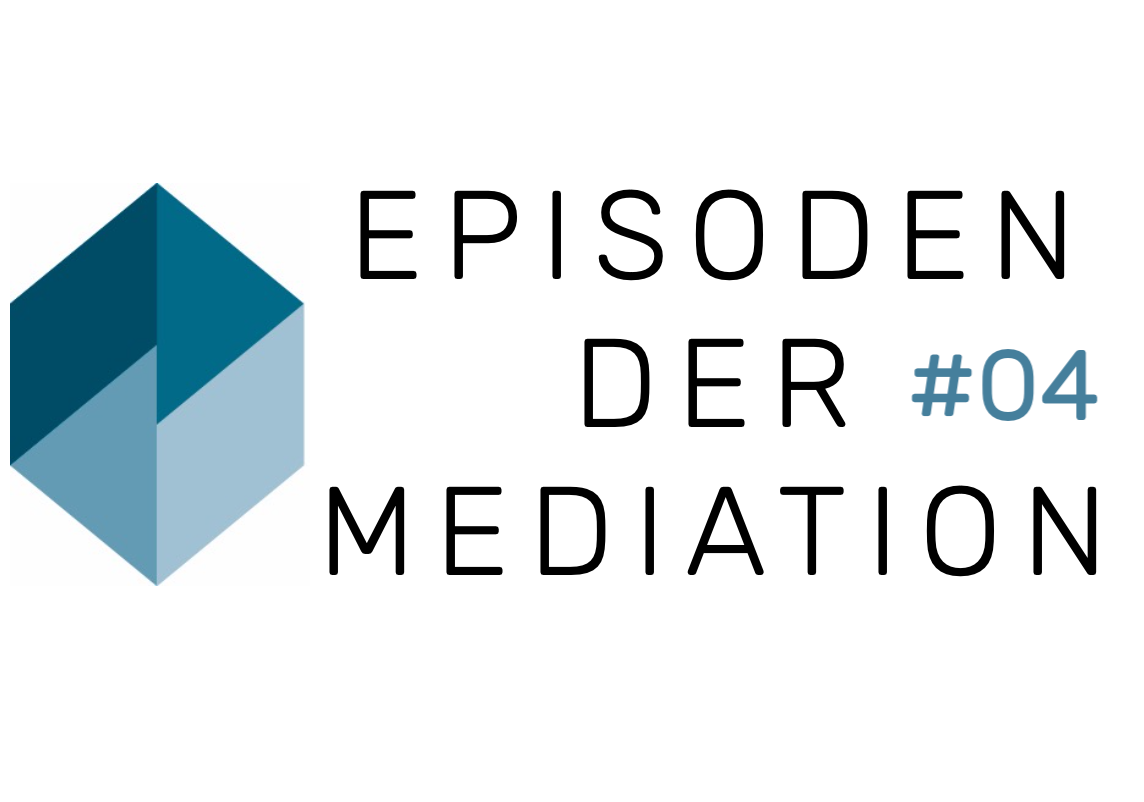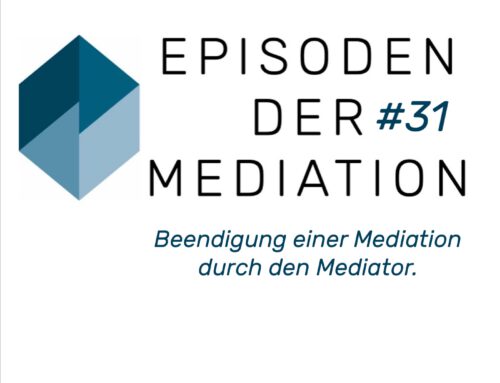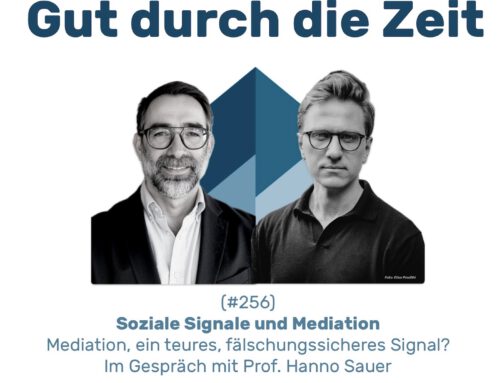INKOVEMA Podcast „Episodes of Mediation“
#04 EdM – The organisation as mediator
Why it is appropriate for the organisation to be represented in mediation.
Episodes of mediation. The podcast on practical questions about mediation and conflict management.
Welcome to the EdM,
INKOVEMA's teaching stream on the practical issues of mediation and conflict management.
Practical situations in mediation, but also in coaching and conflict counselling, are explained, reflected upon and categorised.
This is episode 4 – The organisation as mediator.
As with any mediation, the question arises as to who needs to be involved in the mediation in order for the conflict resolution to be successful. In the case of internal mediation, i.e. when the potential for conflict between employees of an organisation has been realised, the question arises as to whether only the people in dispute need to be involved or whether other people should also be involved.
As in the case of a B2B conflict situation, e.g. between different companies, which is handled by one or more functionariesemployees are represented within the company, the employees act within the company.The mediator is also merely the role holder of the organisation. In this respect, the so-called principal-agent problem could also arise in internal mediation, i.e. that persons authorised to negotiate, make decisions and conclude agreements should sit at the mediation table. And if the representatives do not bring these powers to the negotiating table, this reservation of authority and the resulting need for ratification must be taken into account. This is, for example, a frequent problem in conflicts between the management and the works council representative. If the entire board is not present, the board reservation applies, which is by no means always excluded in advance by a corresponding authorisation to negotiate and conclude.
Problem outlineThe problem is similar in principle with internal mediation. Let's imagine a conflict in a team, a department or a project group. At least according to my observations and looking at the literature on the subject, the question of who is involved in a mediation tends to be a classic one. Who is involved and participates in the escalation or is more or less affected and has to be at the mediation table. This question is usually examined by the initiating body, e.g. the HR department, and answered with the external mediator in question. At the end of this process and at the beginning of the direct mediation discussions, individual employees sit there to clarify the extent to which they can reach agreements that restore their ability to work or whether organisational or contractual separations and possibly dismissals are necessary.
And this overlooks the fact that these parties are only structurally at odds because they are employees or members of this organisation. If they were not members who were carrying out their respective tasks, this specific conflict would not exist. That is why separation and dismissal is also an – extremely effective – conflict resolution, which generally does not have to affect the happiness of those involved more than continued employment, as a Dutch-Belgian study found just a few years ago. I'll put a link to it in the show notes. But more on that another time.
So – what about the organisation as a party to the mediation?
My thesis is: For the quality of conflict management in mediation, it is better and sometimes necessary for the organisation itself to sit at the mediation table and be represented by its own role holder.
Why?:
- In internal mediations that I conducted, the question always arose as to what the framework conditions, the guidelines for conflict resolution were. Certain solutions were simply not feasible because the organisation ruled them out or the effort involved was beyond the tolerance limit. A very simple example that explains the principle: two employees can't smell each other and work out a solution in mediation by moving into new, or at least different, office space that is not actually available.
- The organisation initiates the mediation, organises it and pays for it. They, the organisation, obviously have an interest in conflict management and resolution. This is so obviously the case that it is often overlooked that this organisation should also be represented in the mediation in accordance with the principles of mediation. In every mediation, the parties involved pay their share of the mediation costs. Quite rightly, this does not mean that employees should pay a share of the costs of in-house mediation, but it is equally true that the paying organisation must be involved in the mediation.
- The paying organisation is de facto also a party to the conflict. This is because the specific conflict actors violate the interests of the organisation as a whole in the way they deal with the contradictions and organisational conflict potential between members of the organisation. The destructively handled conflict absorbs all attention and hinders the fulfilment of tasks. If the mediation fails, the organisation not only has a problem, but also a proper and actualised potential for conflict with those involved in the mediation. These members behave contrary to the interests of the organisation.
Therefore, my recommendation: As an external mediator, checkin or as a requesting organisation representativein – jointly if necessary - how and by whom these organisational interests would be well and fully represented in mediation ... and ensure appropriate representation of interests in mediation.
Practical tip: In my practice, it has proven to be a good idea to address this issue in the clarification meeting with all parties involved, including the managers and HR departments, and for the mediator to keep this organisational perspective alive and relevant in the subsequent mediation meetings. This meant that at least a large part of the problems were in view and almost resolved.
Next time
This is about the topic of violence, which can occur in mediation on the one hand or is discussed on the other, sometimes in the form of a threat or, but mostly in the form of a reminder, which has an impact on the content of the mediation.
For the moment, thank you for listening in.
Stay with us and get through this time well.
Yours, Sascha Weigel.





Leave A Comment